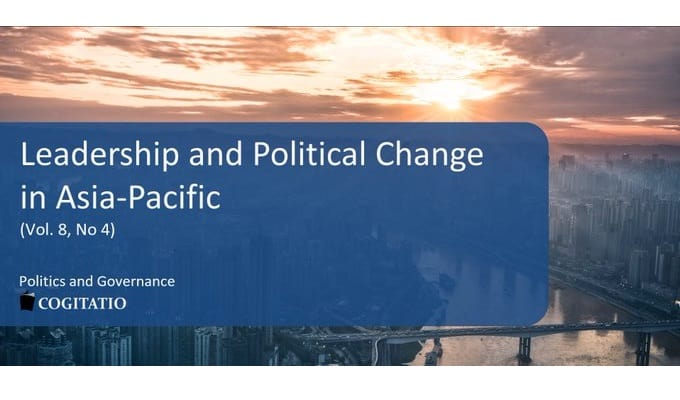In this month’s Leadership Observatory, DLP provide seven takeaways for development programs from a brand new collection of research papers on leadership and political change in the Asia-Pacific. We did not expect this to be released in the middle of a global pandemic, which has highlighted the importance of leadership at community, city, national, and global levels like never before.
Three Pacific cases show how aligning development practices with Pacific understandings of leadership, ways of working and thinking enables more effective, locally led processes of social change.
Roche, Cox, Rokotuibau, Tawake and Smith examine three very different locally led processes of change in the Pacific: Simbo for Change in the Solomon Islands, the Voice in Papua New Guinea, and the regional work of the Green Growth Leaders’ Coalition. In all cases, they find that Pacific leadership preferences are often seen, or felt, to be at odds with western modes of thought and practices of development agencies.
The success of civil society organisations in Indonesia was based on understanding the incentives of politicians and working with them to target areas of mutual advantage.
Sherlock reveals how Indonesian civil society organisations working for women’s empowerment collaborate with MPs to support processes of developmental change. Although MPs act within a structure of institutional incentives, Sherlock argues they also have power to make choices about how they respond to these. This provides an opening for civil society organisations to engage and influence.
China’s increasing technocratic expertise depended on politically-aligned leaders being in the right place at the right time.
The profound leadership transition that emerged in the 1980s and 90s in China is often explained by the demand for educated candidates with technocratic expertise who were to guide China’s economic modernization projects. Lin finds that there was in fact an alliance between technocrats and career bureaucrats, and argues that this shift in China’s leadership did not necessarily represent a preference for technical expertise over political loyalty.
India’s MGNREGA program is a case study in how political will and buy-in is key to successful development policy and programs – and this political process is contingent on leadership at all levels.
Whenever a policy or program fails, the most convenient explanation that is instinctively offered is the lack of political will to make it succeed. However, a lot gets obscured by the idea of political will, not least because it is only ever really defined by its absence. Krishna and Roche unpack the political influences and complex relations between actors and leaders involved in India’s large MGNREGA anti-poverty program.
Grassroots women’s leadership can support the promotion of women’s rights through building relationships and spaces for reflection between women leaders and the wider community.
Women leaders in a microfinance organisation in India provided spaces for reflection, information sharing and to develop skills for action. Gordon shows how drawing upon their own experiences of navigating inequalities, and through supporting the care and well-being of members of the organisation, the women inspired a shared vision for social change.
Programs supporting locally led development in the Pacific should take steps to ensure they do not only capture the voices of the elite in the region.
The Green Growth Leaders’ Coalition represents locally recognised leaders in the Pacific and aims to influence positive change through utilising informal political networks. Craney reveals questions about how much the coalition supports greater ownership of social change at local levels or whether it simply reinforces existing, elite networks. A key takeaway is that the idea of locally led development is complex in practice.
Effective leadership programs and support need to take identity politics into account in addition to technical training and motivation.
Hudson, Mcloughlin, Margret and Pandjaitan show that leaders’ identity trumps performance. One finding is that while many citizens say that gender doesn’t matter, the researchers used an experimental technique to reveal respondents’ actual preferences showing that gender typically does matter. They conclude by arguing that leadership training could help leaders think about how they present or narrate their connection with their followers.
Sign up to receive the Leadership Observatory directly to your inbox










